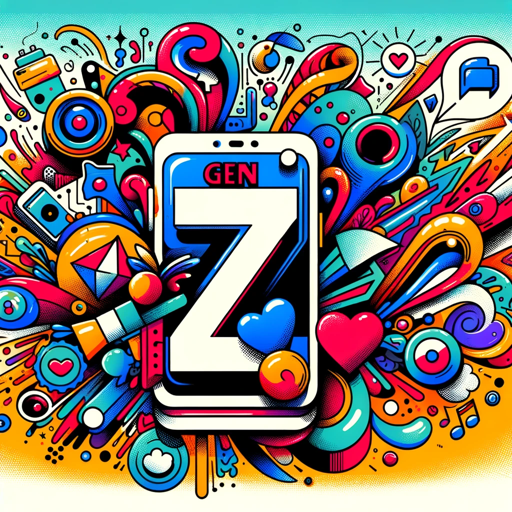IQ-IQ assessment and enhancement tool.
AI-powered intelligence evaluation.
Take the intelligence test
How is IQ related to what job I can get?
Show me the Menu
Why Do Intelligent People Do Stupid Things?
Who was the smartest person in the world?
How does a smart person handle money?
What is the difference between IQ and EQ?
Does drinking alkohol make me dumber?
People that lived 300 000 years ago, how smart would the be compared to todays humans?
What are 10 great books to read to get smarter?
Can any one become like Elon Musk, Steve Jobs, Bill Gates etc. or does one have to be born smart?
Related Tools
Load More
The Master of Insight: Intellectual.AI ✨
Intellectual.AI ✨ slices through the complexities of information to deliver easy and digestile insights. Through a deep dive and a cross domain analysis, you'll be able to unpack any unclear topics with a bit of humour 💥

Professor Orion
The teacher AI with a personality that Grok can only dream of. Input any course title. /code for Code Lessons, /artClass for DALL-E. {Content warning}

Logic
A being of pure logic and intelligence, guiding users with fact-based, critical analysis.

The EPIPHANY Engine⚡️Quantum AI
The Universal Core Intelligence model and metamorphic engine, empowering the OpenAI and the core of GPT-4o.

Brainteaser IQ
Can you get a perfect score?

Aptitude Solver
Expert in fast problem-solving for quantitative aptitude exams. Paste a picture of the problem and ask to solve or to create problems like it.
20.0 / 5 (200 votes)
Understanding IQ: Design and Purpose
IQ (Intelligence Quotient) is a standardized measure of human cognitive ability, primarily designed to evaluate problem-solving skills, logical reasoning, and abstract thinking. The test's design focuses on identifying patterns, logical relations, and general cognitive processing. IQ tests aim to quantify general intelligence (g-factor) using a variety of challenges that evaluate different cognitive domains. The score is meant to predict academic success, job performance, and other forms of intellectual output, though its utility in real-world applications is debated. For example, in professions like engineering or law, high IQ may correlate with better analytical skills, but real-life problem-solving often requires more than just raw intelligence, such as emotional intelligence or experience.

Core Functions of IQ and Their Applications
Measurement of Cognitive Abilities
Example
IQ tests assess logical reasoning, pattern recognition, and abstract thinking.
Scenario
In education, IQ testing is used to identify students who need extra support, such as those with learning disabilities, or to select students for advanced programs.
Predictive Indicator for Job Performance
Example
Occupations like professors, engineers, and physicians often have higher average IQs, reflecting the intellectual demands of these roles.
Scenario
In professional recruitment, some organizations use IQ-like cognitive assessments to evaluate potential employees, particularly for roles requiring complex problem-solving like engineering (average IQ of 125) or law (IQ 128)【14†source】.
Identification of Cognitive Extremes
Example
IQ tests are also used to identify extremely high or low cognitive abilities.
Scenario
In clinical psychology, IQ tests help identify cognitive impairments such as learning disabilities, or conversely, high IQ individuals who may qualify for organizations like Mensa【13†source】.
Target Users of IQ Services
Students and Educators
Students benefit from IQ testing as it can highlight cognitive strengths and weaknesses, helping educators tailor support or advanced learning opportunities. Teachers often use these results to guide learning strategies for gifted students or those needing special assistance.
Professionals and Employers
High-demand fields such as law, medicine, engineering, and academia frequently utilize IQ as part of recruitment for roles that require strong analytical and logical reasoning skills. IQ tests are also used in assessments of leadership potential in corporate environments.

How to Use IQ Tool
Visit aichatonline.org for a free trial without login.
No need for ChatGPT Plus. Begin by exploring the free trial offered on the website to access various IQ functionalities.
Complete IQ-related assessments.
Engage with a variety of IQ tests, puzzles, and mental challenges to assess and improve your cognitive abilities.
Analyze your results.
Review detailed feedback provided for each completed test, helping to understand strengths, weaknesses, and areas for improvement.
Apply cognitive insights to real-life scenarios.
Use the results to tackle decision-making, problem-solving, and critical thinking tasks in professional or personal settings.
Repeat and improve.
Regularly revisit the tool to track improvements over time, with tips and exercises provided for cognitive growth.
Try other advanced and practical GPTs
日语翻译官
AI-powered Japanese translations, anytime, anywhere.

日语翻译
AI-powered Japanese translation tool

商业计划书
AI-powered business planning made easy

商品レビュー マスター
AI-powered product review generator

【V2.0】小红书图片文案机器人
AI-Driven Content Structuring for Visual Impact

画图版
AI-Powered Image Creation Made Easy
Summ X
AI-powered insights for efficient text summarization.

GPT-X
AI-powered assistance for all your needs.

Gen Z GPT
AI built for the Gen Z vibe

ChatD&D
AI-powered D&D for all skill levels.

D & D Oracle
AI-powered D&D guidance for all
D & D Assistant & Dungeon Master
AI-Powered D&D Campaign Assistant

- Problem Solving
- Personal growth
- Career Planning
- Test Preparation
- Cognitive Training
Common Questions About IQ Tool
What does the IQ tool measure?
It evaluates logical reasoning, problem-solving, and cognitive agility, providing a score to reflect general intellectual ability.
How can I improve my IQ score?
Engage in challenging activities such as puzzles, logic games, and real-world problem-solving. Regular practice and learning enhance cognitive functions.
Can IQ predict career success?
While IQ is correlated with certain professional fields, it is not the sole predictor of success. Skills like emotional intelligence and creativity are also critical.
Is the IQ tool useful for all age groups?
Yes, the tool is designed to cater to a wide audience, offering different levels of difficulty to match the user’s age and cognitive stage.
Can this tool identify learning disabilities?
It helps detect areas of cognitive weakness, which might suggest learning challenges. However, it is recommended to consult professionals for a formal diagnosis.